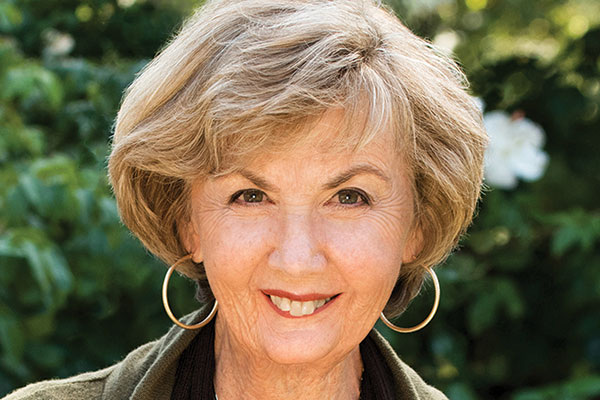Keeping Up Appearances
When Cancer Leaves Its Mark
by Terri Tate, RN, MS
Where I come from, looking good was all that mattered. In Grosse Pointe, Michigan, in the 1950s, what you wore to church on Sunday was more important than how you behaved during the week. My mother never tired of telling me that girls like me needed to “do the most with what they had.” Looking back, I can see that I was a pretty child, but at the time I couldn’t see beyond my freckles and slight chubbiness.
Even as a kid, though, I suspected that who you were on the inside was more important than how you looked. Sure, I wanted to fit in and wore checked gingham skirts over layers of crinolines, but I never spent much time on my hair or make-up. I was more concerned about being a good girl and helping Mom. But I could never do enough to keep her happy. My failure was constantly reinforced by the voice in my head that I would later name “The Vile Witch Upstairs.” I thought this inner critic was all there was to me.
Following Mom’s suggestions, I became a wife, a nurse, and a mother. But she and “The Witch” were still not satisfied. And I grew tired of trying to please them. I entered a period of deferred adolescent rebellion that involved getting divorced, remarried, and then re-divorced. Clearly, I wasn’t cut out for rebellion. So, I stayed busy caring for others, and by my mid-40s, things were starting to look pretty good. My kids were launched, my career was booming, I was engaged to a lovely man, and we had just bought a house so beautiful that we kept waiting for the real owners to show up.
And then, the whole picture began to unravel with the discovery of a little spot under my tongue. I was brushing my teeth one blustery Michigan night when I noticed the sore. It took three months to get a diagnosis: cancer. Surgery removed the tumor, the margins, and some nodes in my neck. The doctor uttered the best words in the English language, “We got it all.” He had done such a skillful job that, after a few weeks, I looked, ate, and talked much as I had before.
With my life on the line, looking good was not high on my priority list.
By the time my remaining tongue started to burn, I was newly married, and my speaking career was busier than ever. It had only been 18 months since the first surgery, but it still took my doctor three months to diagnose the recurrence. By the time he did, I had a tumor the size of a golf ball on my remaining tongue. This surgery was not so simple. It lasted 24 hours, involved removing and rearranging a host of body parts, and left me with less than half a lower jaw. This time, my looks, speech, and eating ability were all affected. And I had a two-percent chance of survival.
With my life on the line, looking good was not high on my priority list. After all, my husband vowed that he could see my inner beauty. Then he left me for a younger, blonder, more symmetrical woman. I was alone, disfigured, and pushing 60. What could I do?
There was no changing the external realities, so I had to look inside for peace. I spent quiet time alone, wrote in a journal, went for walks, and discovered that there was more to me than “The Vile Witch Upstairs.” I unearthed wise and loving parts of myself and got to know them. I learned to care for myself as I had always cared for others.
Facing disfigured dating at 71, I can’t say I’m thrilled to be “facially different.” But I’m grateful that I’ve found a way to accept myself “as-is.” Cancer can ravage our bodies, but not our souls. Be gentle with yourself as you face this challenge. Loving ourselves improves the quality of our lives, no matter what we look like.
Terri Tate (pictured above) is a speaker, humorist, and author of A Crooked Smile, her recently published memoir with a foreword by Anne Lamott. You can learn more about Terri at TerriTate.com, or follow her on Twitter @terri_tate.
This article was published in Coping® with Cancer magazine, July/August 2017.
Everyone has a unique story to share. Do you want to share your survivor story? We consider a cancer survivor to be anyone living with a history of cancer – from diagnosis through the remainder of life. Here are our submission guidelines.


